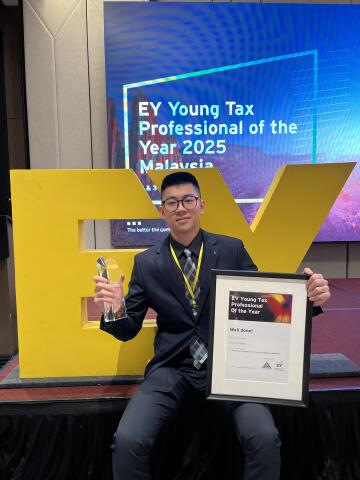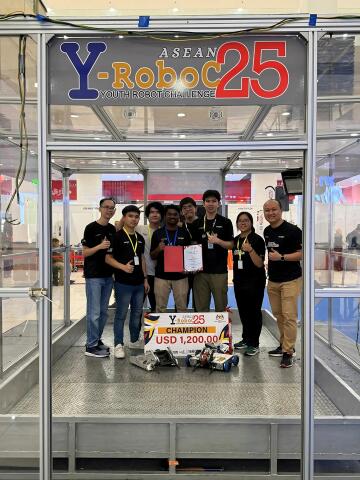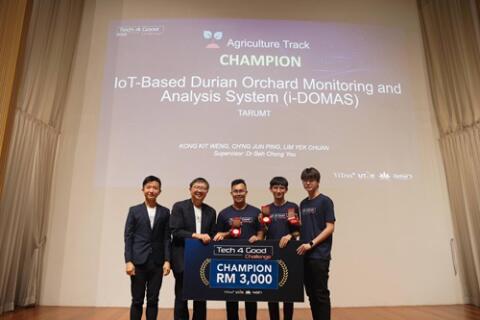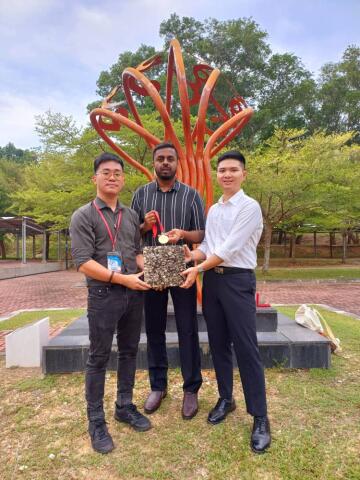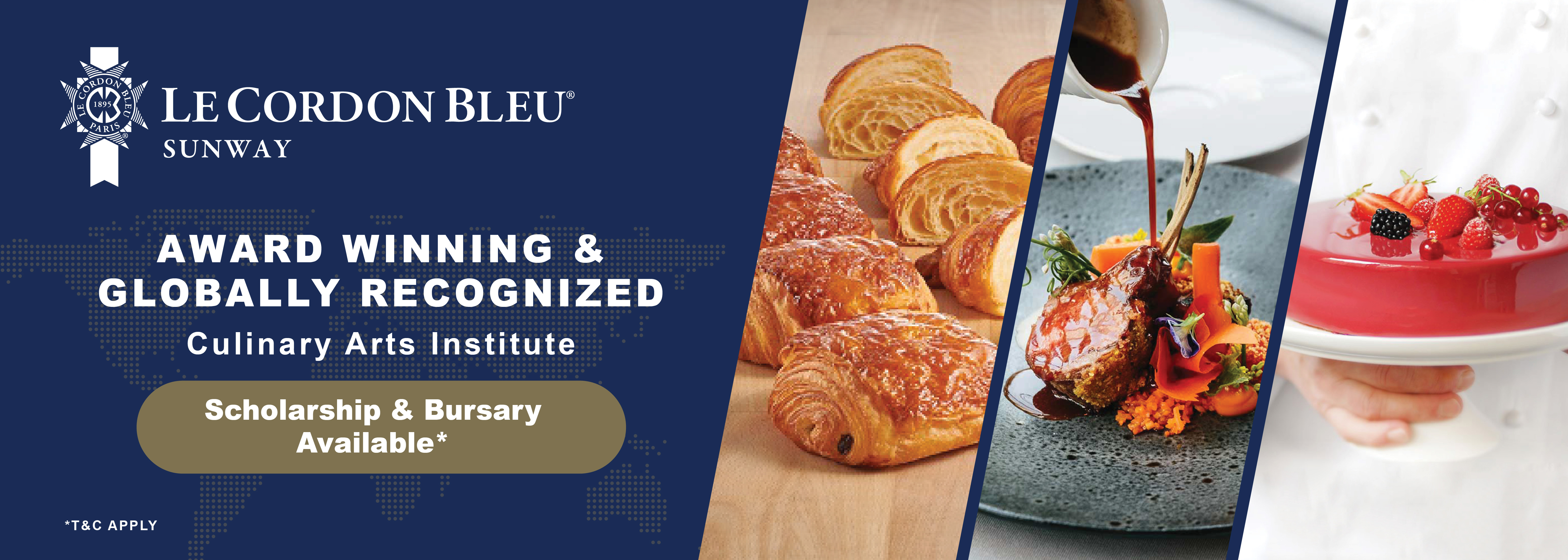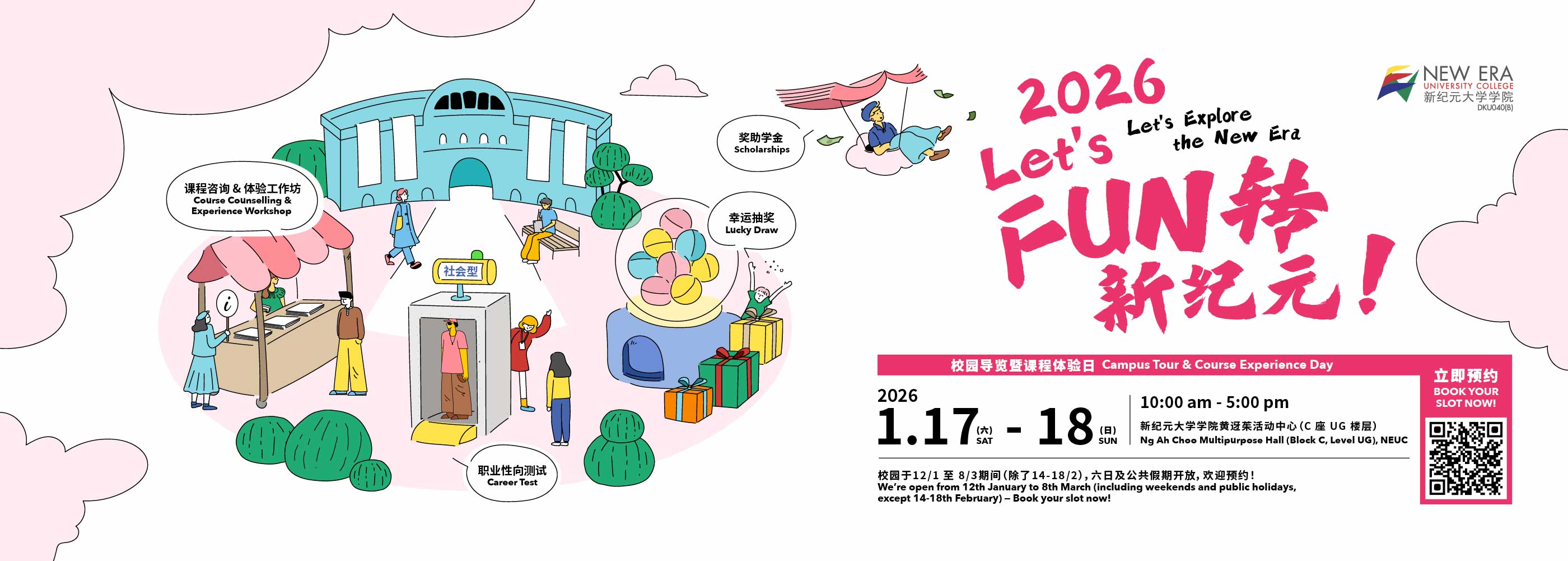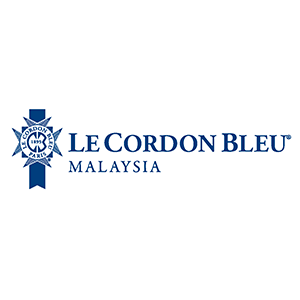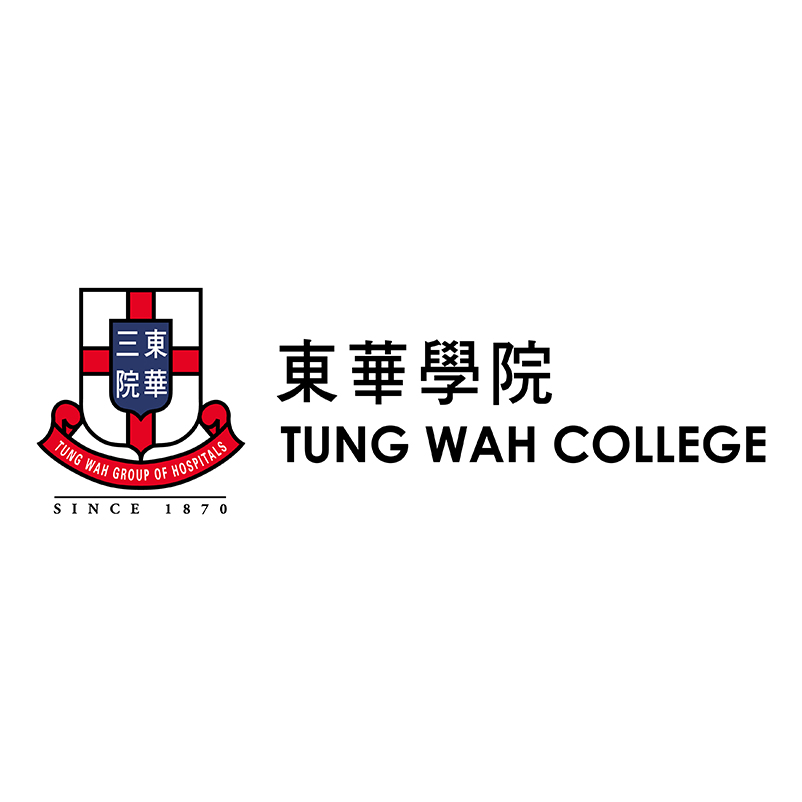Dato' Fazley Yaakob: MasterChef Winner and Proud Alumnus Shares His Culinary Journey
— LE CORDON BLEU MALAYSIA —
In this interview we caught up with former Le Cordon Bleu Malaysia and Paris student Dato' Fazley Yaakob, who graduated with our Diplôme de Pâtisserie.
Dato' Fazley Yaakob, esteemed chef and winner of MasterChef Celebrity Malaysia 2012, offers a glimpse into his remarkable culinary journey in an exclusive interview. Delve into why he chose Le Cordon Bleu for his culinary education and discover how this decision has profoundly influenced his career. Gain insights into his experiences and achievements, from his time at Le Cordon Bleu to becoming a celebrity figure in the culinary world. In this engaging conversation, Dato' Fazley shares valuable advice for aspiring chefs aiming to carve a successful path in the industry. Learn from his expertise and passion for culinary arts as he discusses the challenges and triumphs that have shaped his illustrious career.
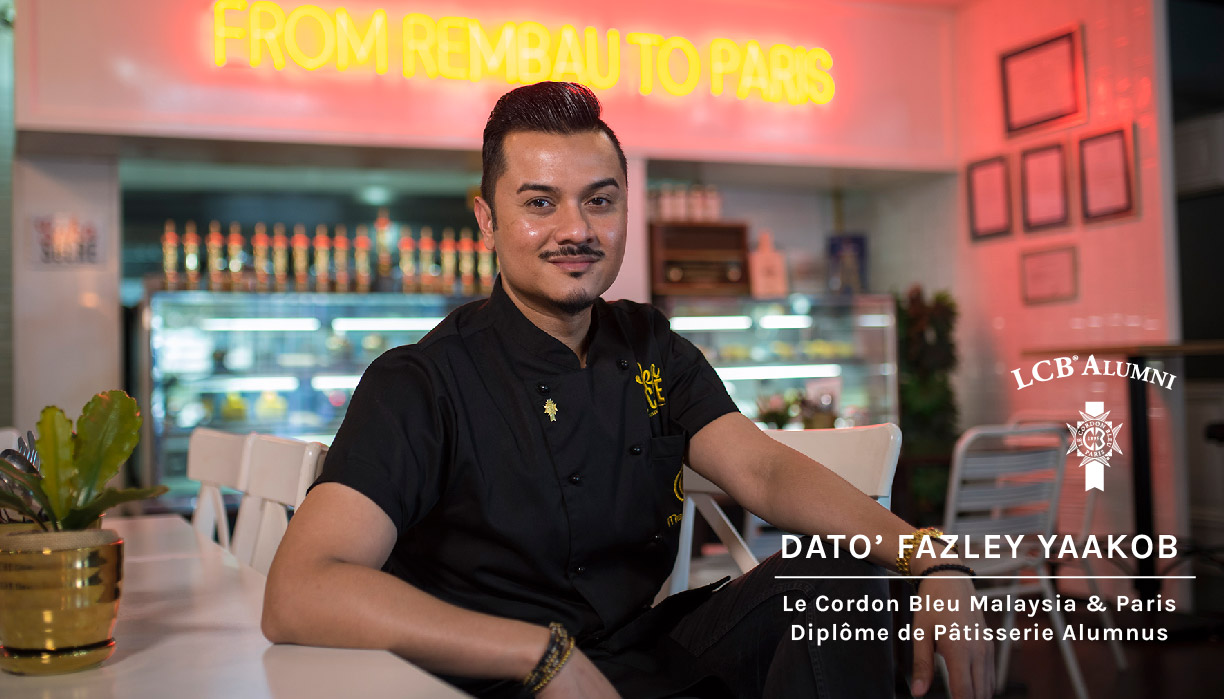
Could you describe your culinary training and background?
After winning MasterChef Celebrity Malaysia in 2012, I pursued my culinary education at Le Cordon Bleu Malaysia for two semesters. For my final semester, I continued at Le Cordon Bleu Paris, completing my training. Upon returning, I further honed my skills with professional courses in Indian, Thai, and other traditional cuisines, including Indonesia.
Shortly after, I joined the HEG program at the University of Reims in collaboration with Le Cordon Bleu. This specialized gastronomy program provided me with invaluable culinary training and insights.
What inspired you to join the Master Chef competition in 2012? Briefly describe your feelings and overall experience of the competition.
To be honest, I ended up joining the MasterChef celebrity competition somewhat by accident. Initially, I thought I was signing on as a motivational consultant, a role I had held for many years with programs like Academy Fantasia and Raja Lawa on Astro. It wasn't until later that I discovered I was actually one of the contenders. The entire experience of MasterChef really opened my eyes to the culinary world.
Cooking has always been a significant part of my family—my wife, my mom, and my grandma are all excellent cooks. My wife patiently taught me how to make rendang, my mom guided me through preparing lemak cili api, and I vividly recall my grandma's techniques for making traditional kuih. Winning MasterChef gave me a deeper appreciation for culinary arts, something that runs in my blood. After that experience, I fully embraced my culinary journey and haven't looked back since.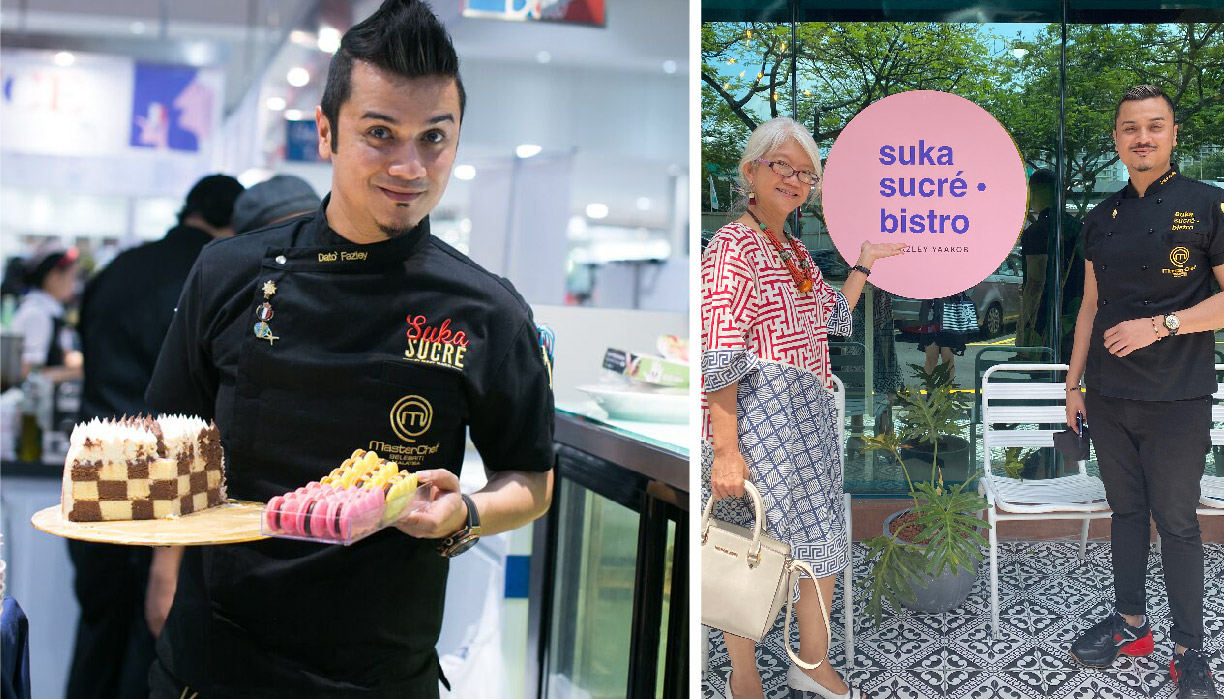
In what year did you start studying at Le Cordon Bleu? Can you describe a few fond memories, and culinary experiences that you’ve learned at Le Cordon Bleu?
I started studying in Le Cordon Bleu the same year I won MasterChef. And I think the fondest memory of Le Cordon Bleu is with Ming (Senior General Manager of Le Cordon Bleu Malaysia), where Ming said to me, “why don't you join Le Cordon Bleu? it would be a new elevation of your skills, branding and also your image after winning MasterChef. I think Ming personally encouraged me to continue my studies at Le Cordon Bleu.
And I think my best experience also is when I met my pastry chef, he gave me all the experience needed not only just open up my eyes, but my interest, into learning the French techniques. And both Ming and my pastry chef instructor and the executive chef for Le Cordon Bleu gave me a new journey that I never knew that I needed.
What advice would you give to fresh graduate culinary students, so that they can stand out in their job applications?
For fresh culinary graduates, especially those just starting out, it's crucial to stay committed and focused. I've encountered many students who hold impressive qualifications like Grand Diplomas, Diplomas, or culinary degrees, yet some eventually drifted away from the industry. It's essential to know what you truly want.
The culinary industry is vast and diverse—you can't excel at everything all at once. Whether your passion lies in pastry, hot kitchen, or a specific cuisine like Western, Asian, or French, it's important to choose a specialization. Focusing on one area allows you to hone your skills and stand out in job applications. Without clear direction and focus, interviewers can sense uncertainty.
Personally, my lifelong love for Negeri Sembilan cuisine shaped my career path. Growing up with these flavors inspired me to blend them with a French touch at my restaurant, Sukasucre. Named "From Rembau to Paris," reflects my journey and collaborations with international and local brands, infusing Negeri Sembilan flavors into every aspect. Having a genuine passion and a clear focus not only defines your career path but also sets you apart in the competitive culinary world.
Name 3 hard skills and 2 soft skills that you think Malaysian culinary graduates are lacking. And how can they improve on that?
As a chef, I believe it’s important for you to be skilled in both pastry and hot kitchen work. In the industry, I've noticed many chefs, even the experienced ones, struggle with baking. Once they handle the hot kitchen, they often no longer deal with pastry work, whether it's creating a crumb coat on a cake or working with sugar.
I think there are three essential hard skills in the kitchen: a solid basic understanding of pastry, a strong background in hot kitchen techniques, and proficient knife skills. Additionally, it's important to be able to use a whisk properly.
Regarding soft skills, the first is communication. Many chefs know how to talk, but effective communication—conveying the right message with the right intention—is crucial.
The second soft skill is perseverance. In the culinary industry, you need to know when to accept defeat and when not to. Every time you fall or receive criticism, you must be able to bounce back. These five skills are essential for graduates to stand tall and compete with other graduates globally.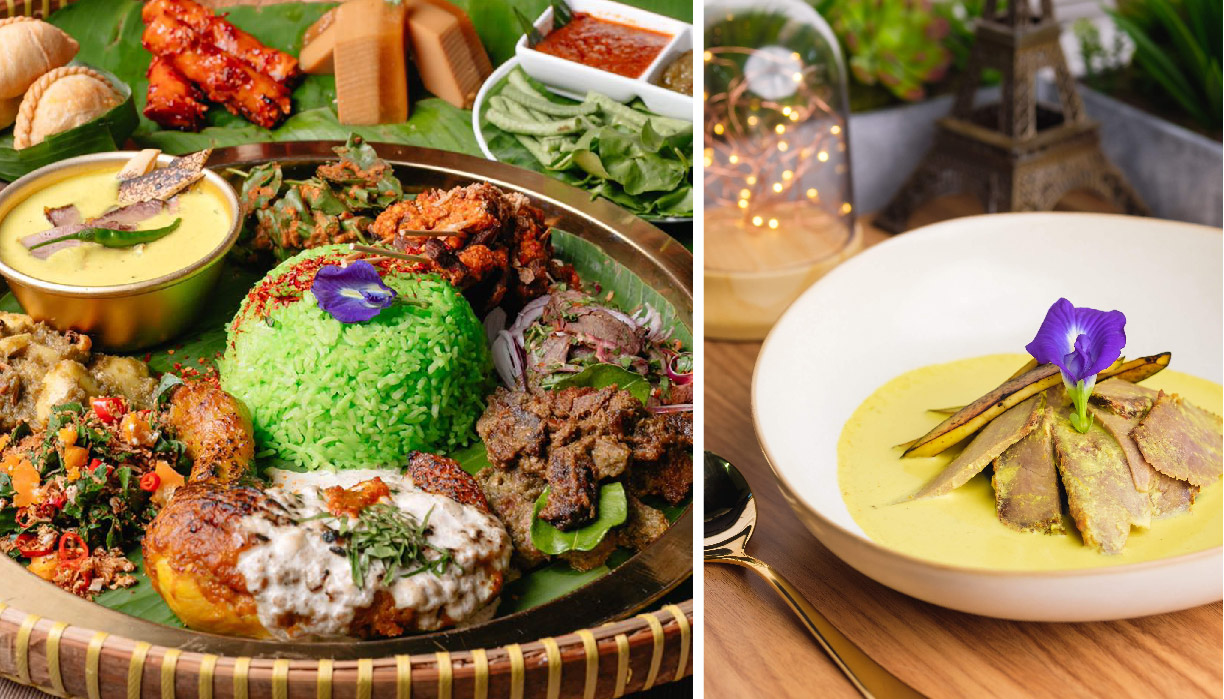
We heard that you also own your very own restaurant, Suka Sucre. What does Suka Sucre mean? And what is the concept/inspiration behind Suka Sucre’s food?
Yes, Suka Sucre has been around for almost 10 years now. The name Suka Sucre combines words from Bahasa Malaysia and French. "Suka," a Malay word, means the liking of something or fondness. It has many subjective meanings in Malay. When combined with "sucre," which means sugar in French, it translates to the liking of sugar or sweetness, symbolizing positivity. That's why I named it Suka Sucre. The concept, "Rembau to Paris," represents Negeri Sembilan food with a French or Parisian touch.
Can you describe your restaurant’s signature dish? And why does Suka Sucre’s signature dish stand out from other competitors?
One of the crowd favorites was the Beurre Bourguignon with Sambal Minang (Chilli-Hot relish from Minang). Another popular dish was my Pasta Daging Salai Lemak Cili Api (Pasta with spicy smoked meat). For dessert, I always incorporate Le Cordon Bleu techniques, blending them with distinct Negeri Sembilan flavors. For instance, dishes like Puteri Aman (Coconut Buttons with Palm Sugar Syrup) or Pengat Pisang (Warm Coconut Banana Soup), while they may not look traditional, resemble elegant Ladurée desserts in presentation.
Name 3 challenges have you faced in the culinary industry, and how did you overcome them?
The first challenge was when I introduced my restaurant Suka Sucre and we launched Daging Salai Lemak Cili Api with pasta. This dish, sacred to the people of Negeri Sembilan, was criticized heavily. Many claimed I spoiled the traditional way of making Daging Salai Lemak Cili Api. However, not long after, I noticed many other restaurants introducing their own versions of this dish. I can safely say that I was one of the first chefs to introduce such a controversial dish into the industry.
The second challenge was with my sweet table concept. Known for my sweet table, where desserts are served directly on the table without plates and eaten with hands, I faced a lot of backlash. People saw me throw desserts on the table and seemingly dance to music while doing so. This concept caused an uproar, and I was criticized heavily. However, a few months later, I was invited to Brunei, Paris, and Singapore for six-star hotel launches, and the sweet table concept became widely accepted, despite the initial negativity.
The third challenge I face to this day is sustaining the restaurant. It’s not easy. Any restaurant owner who also takes on multiple roles, including chef, cleaner, and market shopper, knows how challenging it is to run a restaurant. The challenge is to maintain the brand, consistency in our products and ensure the sustainability of the business. The only way to overcome these issues is to be patient, resilient, and able to move forward while leaving negativity behind. It sounds cliché, but that’s the reality.
What advice would you give to our students who are hoping to open their own restaurant in Malaysia someday?
For students who hope to open their own restaurant, always start small. Even if you have a million-dollar budget from the bank or your parents, start small. Suka Sucre began behind my house, selling only macarons and collaborating with many other cafes. From there, we opened a pop-up store, then a restaurant, and eventually moved from Cheras to Damansara Heights. We survived during the MCO and are now in a five-star hotel.
Starting small is crucial because it helps you understand the challenges you will face and allows you to gradually take on bigger responsibilities as the business grows. That’s my humble advice.
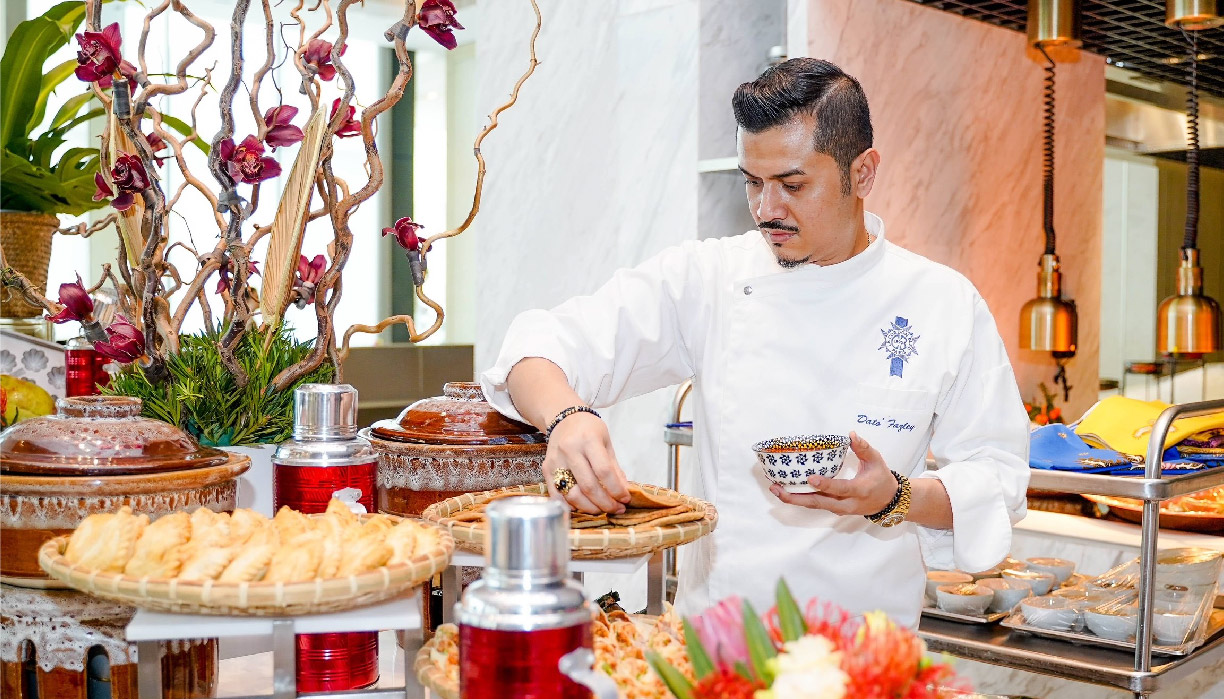
How do you maintain work-life balance in such a demanding industry? Is it possible?
Work-life balance is possible. You just need to be very disciplined and work with your own calendar. Everyone uses a smartphone these days, so even if you're going to the gym for badminton like me, you need to put it in the calendar. For instance, you know that between 8 a.m. to 9 a.m. is gym time, then 10 a.m. to 12 p.m. is meeting time, and maybe 6 p.m. to 8 p.m. is family time.
You need to have that discipline instilled in your head because only then will you be able to create a routine. For a routine to be created, you need to develop good habits, and habits will only form if you practice them consistently. A good habit, or a bad habit for that matter, can either build up your name or spoil your brand. So, work-life balance is important through discipline, and yes, it is possible.
Is there anything motivating or encouraging that you would like to say to all aspiring culinary chefs or Le Cordon Bleu’s students?
To all aspiring culinary chefs and students of Le Cordon Bleu: Remember, you must enjoy food to prepare good food. Being a food critic of other restaurants doesn’t make you a good chef. However, being your own food critic can help you learn how to cook the best food or bake the best cake or dessert.
Knowing your strengths and weaknesses as a chef is key to improvement. If you can control your ego and accept criticism from others, especially your customers, you can become a good chef. Being egotistical will never take you far. Trust me.
For more information, please whatsapp us at 019-305 2586 or email to malaysia@cordonbleu.edu
Advices
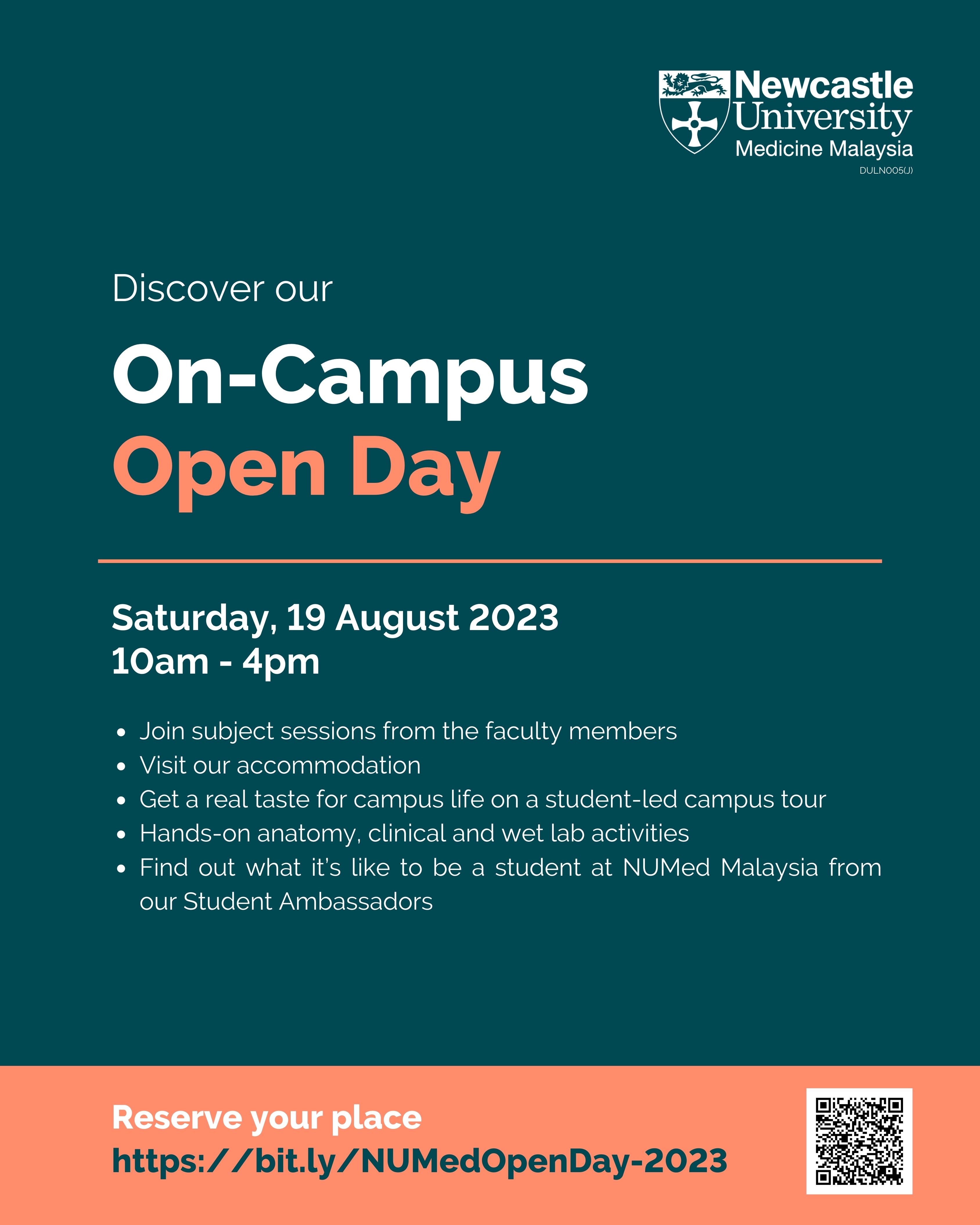




News from Institutions

